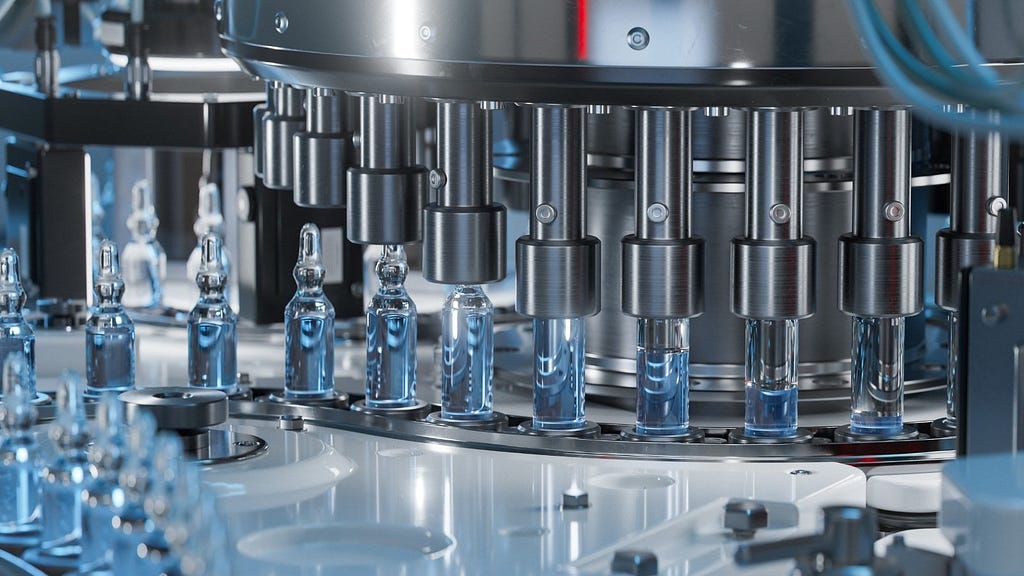
Code Meets Cure: How Generative AI Is Transforming Pharma
In a quiet lab tucked away in Cambridge, scientists once spent years sifting through countless chemical compounds, hoping to stumble upon the next breakthrough drug. Their work was meticulous, their progress painstaking, and the stakes, human lives, were immeasurable.
Today, that same lab hums with a different kind of energy. Algorithms now dance alongside researchers, generating novel molecular structures at a speed and scale once unimaginable. This is the promise of generative AI, a technology that is not just augmenting the pharmaceutical industry but rewriting its future.
From accelerating drug discovery to personalizing treatments, generative AI is ushering in a new era of medical innovation, where the boundaries of possibility are expanding faster than ever. According to McKinsey and Co., this technology could generate $60–110 billion annually in economic value for the pharma and medical-product industries by boosting productivity across the value chain. As the industry grapples with high development costs and lengthy timelines, Generative AI offers a transformative path forward, promising faster innovation and better patient outcomes.
Generative AI Has Been Redefining Every Step Of The Pharma Value Chain
Source: McKinsey and Company
The pharmaceutical value chain encompasses five key stages: Research and Early Discovery, Clinical Development, Operations, Commercial, and Medical Affairs. Generative AI is revolutionizing each, delivering efficiency, precision, and scalability.
1. Research and Early Discovery
This stage involves identifying drug targets and compounds, a process that can take years. Generative AI accelerates it through:
Scientific Knowledge Extraction: AI analyzes unstructured data from patents and publications, increasing manual drug target assessments by over 30%.In Silico Compound Screening: Boosts screening performance by up to 2.5 times, reducing lead identification time from months to weeks.Large Molecule Optimization: Speeds up protein design by over three times, enabling faster development of biologics. Tools like AlphaFold2 have advanced protein structure prediction, paving the way for AI-driven molecule design.
2. Clinical Development
Clinical trials are costly, with a median cost of $2.8 billion per approved drug. Generative AI optimizes this phase by:
Trial Performance Co-pilot: Provides real-time insights, improving cost efficiency by 20% and enrollment speed by 10–20%.Smart Data Management: Automates data handling, saving over 30% in costs and reducing database lock time by over 50%.Regulatory Intelligence Engine: Predicts regulatory queries, cutting response times by 30%.
3. Operations
Manufacturing and supply chain operations benefit from AI-driven efficiencies:
Augmented Sourcing: Reduces costs by 5–10% and boosts productivity by 50–80%.Gen AI Virtual Assistant for Manufacturing: Improves equipment effectiveness by 10–15% and reduces quality costs by 5%.No-Touch Planning: Enhances inventory planning accuracy by 15%.
4. Commercial
Generative AI transforms commercialization by enabling personalized engagement:
Personalized Content Creation: Reduces marketing material costs by 30–50% and accelerates pipelines by over 20%.Customer-Enablement Co-pilot: Boosts field team productivity by 10–15%, contributing to 1–2% topline growth.
5. Medical Affairs
AI enhances scientific communication and insights:
Customer Insight Generation: Increases insight capture multifold through field interaction analysis.Efficient Medical Communication: Saves 20–30% in medical writing costs and reduces response times by 50–70%.
Pharma’s Embrace of Generative AI Is Rapid, Strategic, and Unstoppable
Source: McKinsey and Company
The adoption of Generative AI in pharmaceuticals is accelerating, driven by its potential to address longstanding challenges. The McKinsey Global Institute estimates that Generative AI could contribute $60–110 billion annually, with commercial functions accounting for $18–30 billion. AI spending in pharma is projected to reach $3 billion by 2025, reflecting a surge in adoption to reduce development costs and timelines. The rise in AI-related job postings, growing 43% annually since 2018 among top pharma companies, underscores this trend.
In India, 82% of surveyed pharma and life sciences organizations have adopted AI at a small scale, with plans to expand in 2024. The Indian pharmaceutical market, the third-largest by volume, is poised to leverage AI to enhance global competitiveness.
Generative AI Is Reengineering Pharma In Practice With Several High-Impact Use Cases
Source: Boston Consulting Group
Generative AI’s transformative potential is evident in several high-impact use cases:
In Silico Compound Screening: AI analyzes vast chemical libraries to identify promising drug candidates, reducing costs and time. Insilico Medicine’s AI-generated drug, INS018_055, entered Phase 2 trials for idiopathic pulmonary fibrosis, showcasing practical success.Personalized Content Creation: Indegene’s NEXT Commercial Content Intelligence platform automates content tagging, cutting time to market by 90% for a global pharma company. This enables hyper-localized marketing, enhancing engagement with healthcare providers.Trial Performance Co-pilot: AI optimizes patient selection and trial protocols, improving success rates by 10% and reducing costs by 20%.Gen AI Virtual Assistant for Manufacturing: Enhances production efficiency, reducing quality costs and improving equipment effectiveness by detecting anomalies and optimizing maintenance.
These use cases highlight how Generative AI accelerates processes, enhances precision, and scales personalization, but they also require robust data infrastructure and regulatory compliance to mitigate risks like inaccurate outputs or data privacy concerns.
Converting The Generative AI Ambition Into Action Has Certain Risks And Challenges
Source: Accenture
Implementing Generative AI in pharma involves several challenges:
Data Infrastructure: Robust data architectures are essential to handle complex datasets, requiring significant investment.Talent Shortages: The demand for AI experts is surging, with job postings quadrupling since 2022, necessitating reskilling programs.Regulatory Compliance: Ensuring AI models meet stringent regulations, like the FDA’s guidelines, requires human oversight and guardrails.Ethical Concerns: Addressing data privacy and bias is critical to maintain patient trust, requiring responsible AI frameworks.
Startups In India And Abroad Are Rewriting The Pharma Playbook With The GenAI Revolution
International Startups
The global landscape is vibrant with startups leveraging Generative AI for drug discovery and development:
Insilico Medicine (Hong Kong/US): Uses its Pharma.AI suite to discover novel targets and generate molecules. Its drug, INS018_055, is in Phase 2 trials for fibrosis, and the company raised $110 million in Series E funding in 2025.Atomwise (US): Focuses on AI-driven drug discovery for autoimmune diseases, securing a strategic collaboration with Sanofi to advance TYK2 inhibitors.Cradle Bio (US): Uses Generative AI to design proteins for therapeutics, raising $73 million in Series B funding in November 2024. Partnerships with Novo Nordisk and Johnson & Johnson highlight its impact.Isomorphic Labs (UK): A DeepMind spin-off, it leverages AlphaFold3 for drug research, raising $600 million in 2025 to advance its pipeline.
Indian Startups
In India, the Generative AI pharma ecosystem is emerging:
PopVax (Hyderabad): Develops mRNA vaccines using computational protein design, likely incorporating AI techniques. It received $1.15 million from the Bill & Melinda Gates Foundation and $2 million from BARDA’s Patch Forward Prize for its influenza vaccine.Indegene (Bangalore): Uses Generative AI for content creation and pharmacovigilance. Its NEXT Commercial Content Intelligence platform reduced time to market by 90% for a global pharma company, and its GenAI-powered “Avatar” solution cut video production costs by 40%.
Global Investors Are Betting Big On Generative AI Startups in Pharma
Globally, investment in AI-driven pharma startups is robust. In 2024, over $7.5 billion was invested in AI health-related startups, with $1.68 billion in Q1 2025 alone. Notable rounds include Xaira Therapeutics’ $1 billion Series A for its AI drug discovery platform and Isomorphic Labs’ $600 million.
In India, venture capital funding surged to $13.7 billion in 2024, with AI and deeptech gaining traction. Indian AI startups raised $780 million in 2024, a 39.9% increase from the previous year. While specific data for Indian AI pharma startups is limited, PopVax’s grants and Indegene’s $200 million raise in 2021, valuing it at $700 million, indicate growing interest in the space.
Generative AI Is The Key To Envisioning A Smarter, Faster, And More Personalized Future In Pharma
The future of Generative AI in pharma is promising, with significant advancements anticipated:
Accelerated Innovation: Experts predict AI will reduce drug development costs by $40–400 million per drug by optimizing data analysis and trial design. By 2034, the AI pharma market could reach $16.5 billion.Personalized Medicine: Generative AI will enable tailored treatments by analyzing patient data and predicting outcomes, enhancing precision medicine.Regulatory Evolution: The FDA is developing guidelines for AI in drug development, with a risk-based credibility assessment framework to ensure safety and effectiveness.Responsible AI: Ethical practices are critical to address data privacy, bias, and regulatory compliance, ensuring transparency and trust.
By 2030, Generative AI is expected to be deeply integrated, enabling real-time data analysis, streamlined supply chains, and enhanced patient engagement, transforming healthcare delivery.
India’s Tech Edge Can Lead To Its Positioning as a Global Leader In AI-Driven Pharma Innovation
India, with its robust pharmaceutical industry, the third-largest by volume globally, stands to gain significantly from Generative AI adoption. The technology offers opportunities to enhance competitiveness, reduce costs, and drive innovation, but also presents unique challenges.
Global Capability Centers (GCCs): India hosts numerous GCCs for global pharma companies, which are increasingly adopting AI. Companies like Agilisium provide AI solutions, such as content generation and data observability, to address data silos and improve efficiency. For instance, Agilisium rearchitected a Fortune 500 Biopharma company’s data lake/warehouse, achieving a 75% increase in data processing efficiency and multimillion-dollar cost savings. GCCs employ 1.6 million people, with projections to reach 4.5 million by 2030, and a market size growth from $45 billion to $110 billion.Market Potential: The Indian pharma industry is poised for growth, with Generative AI enabling faster drug development and operational efficiencies. AI-driven solutions can help Indian companies compete globally, particularly in generics, where AI identifies off-patent drugs for first-mover advantage.Government Support: Initiatives like the National Health Authority’s collaboration with IIT Kanpur under the Ayushman Bharat Digital Mission are fostering AI innovation in healthcare, supporting pharma applications.Talent Pool: India’s large AI talent pool is a key asset, with GCCs prioritizing reskilling, 51% focus on AI training for growth. However, only 15% of organizations are reskilling at scale, despite high employee interest.Challenges: India faces hurdles like inadequate data infrastructure, regulatory complexities, and talent shortages. Many companies are in early AI adoption stages, requiring significant investment in data platforms and compliance frameworks.
Picture a world where a child diagnosed with a rare disease no longer faces a lifetime of uncertainty, where a single algorithm can design a tailored treatment in days, not decades. This is not a distant dream but a reality Generative AI is beginning to shape.
As the pharmaceutical industry stands at the cusp of this technological revolution, the implications are profound — not just for scientists and companies but for patients and societies worldwide. Generative AI is more than a tool; it catalyzes hope, efficiency, and discovery.
For startups and investors, the opportunity is clear: those who embrace this technology today will be in charge of creating tomorrow’s cures. As we move forward, the question is not whether generative AI will transform pharmaceuticals but how boldly we will seize its potential to heal, innovate, and inspire.
If you are a founder building in the Generative AI space and are looking to raise capital or explore M&A opportunities, please reach out to udayan@loestro.com, we’d love to have a chat.
LoEstro Advisors is an investment banking firm specializing in sell-side fundraising and M&A advisory, along with a strong consulting arm. Recognized as the #1 financial advisor in education in India, we are the advisor of choice to India’s blue-chip education businesses.
Over the last four years, we have grown to be one of India’s largest (in terms of M&A transactions) homegrown boutique investment banks, with $1.25 bn+ worth of combined deals closed across education, healthcare, consumer, and technology sectors.

